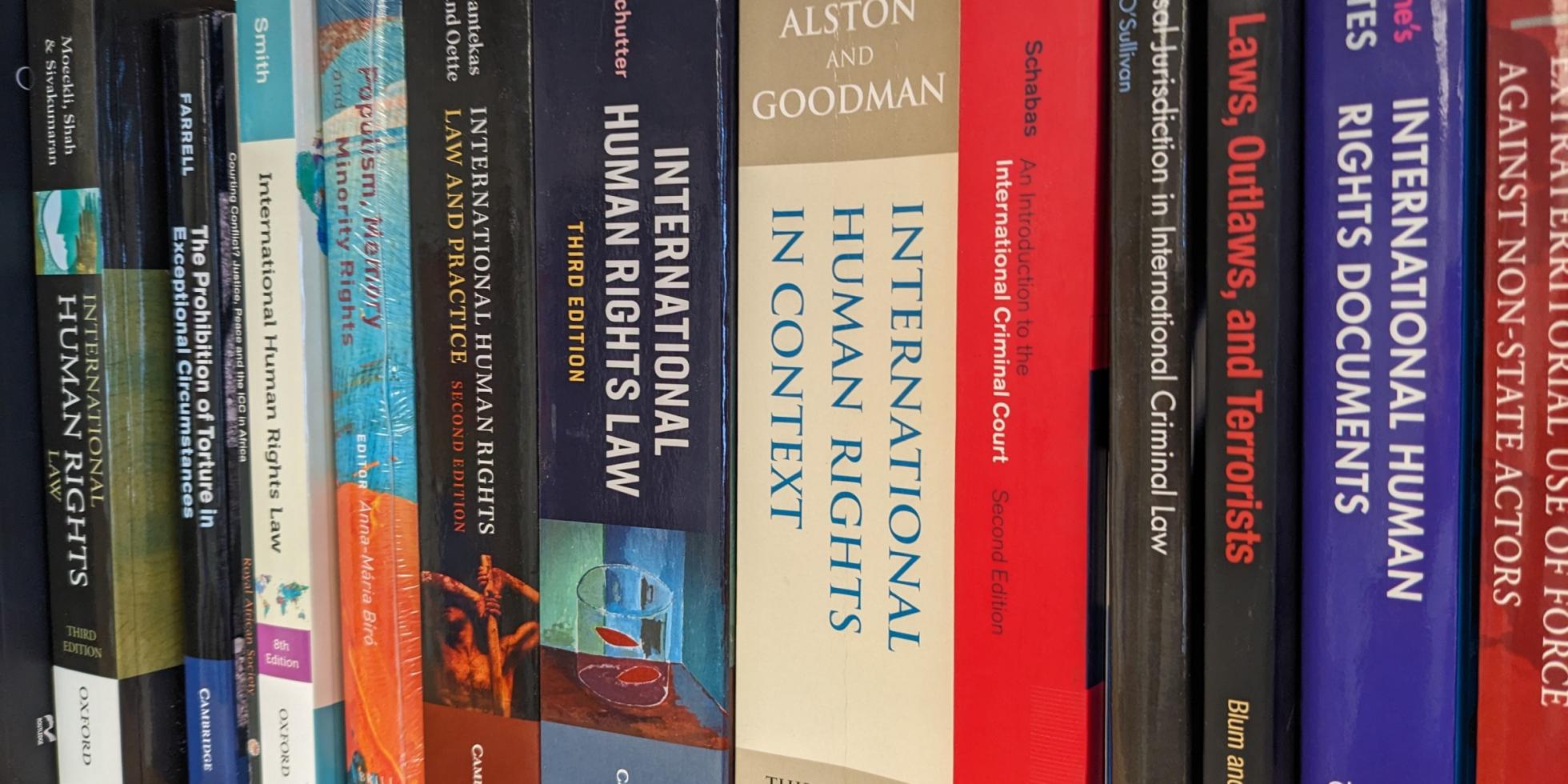The virtual human rights library brings together resources from multiple libraries and information services, both internal and external, to create an online hub dedicated to the study of human rights. This curation is unique in its interdisciplinary concerns and focuses on writings and research from social sciences, humanities, and law.
The virtual library is continually updated with the latest academic research in issue areas, as well as with relevant films, recorded conversations, and other forms of media.
Please Note:
The Virtual Library is usable by all visitors, but the hyperlinks to materials listed are for UChicago community members with a CNet ID and password.
Please direct feedback and suggestions to Kathleen Cavanaugh.
For technical assistance, email pozenhumanrights @ uchicago.edu.
Searchable Database
Click into the dropdowns to select the disciplines, keywords, and media type for your search, and then hit "Apply."
"The psychic life of biopolitics: Survival, cooperation, and Inuit community"
What does it mean for Inuit to cooperate with the (disavowed) desires that emerge in a colonial bureaucracy dedicated to improving Inuit lives? In this article, I consider the psychic life of biopolitics in the context of welfare colonialism in...
"The Right to Rights?: Undocumented Migrants from Zimbabwe Living in South Africa."
This article examines the disjuncture between the theory of international refugee protection, human rights and citizenship rights and their practice. Drawing on data from a sub-sample of 500 Zimbabwean migrants taken from a larger survey of 1000 Zimbabweans in South...
"The Right to Work and American Inequality."
Labor historians describe Right to Work (RTW) as among the most consequential pushbacks against the early twentieth-century ascent of labor unions. Yet research on the economic consequences of RTW remains mixed, with nearly all research centered empirically and theoretically on...
"The Sacralization of the Individual: Human Rights and the Abolition of the Death Penalty."
In the latter half of the 20th century, countries abolished the death penalty en masse. What factors help to explain this global trend? Conventional analyses explain abolition by focusing primarily on state level political processes. This article contributes to these...
"The Scored Society: Due Process for Automated Predictions"
Big Data is increasingly mined to rank and rate individuals. Predictive algorithms assess whether we are good credit risks, desirable employees, reliable tenants, valuable customers—or deadbeats, shirkers, menaces, and “wastes of time.” Crucial opportunities are on the line, including the...
"The Sociological Discourse on Human Rights: Lessons from the Sociology of Law."
Since when, how, and why have sociologists discussed human rights in their work? In which forms of theoretical and empirical inquiry have such investigations been conducted, and what are some of their consequences for the praxis of sociology as well...
"The Sociology of Law as an Empirical Theory of Validity."
Contrary to current tendencies, the founders of sociology as a discipline regarded the sociology of law as an integral part of social theory. Law and its historical variations were treated by them as a constitutive component of social life. This...
"The Strange Triumph of Human Rights, 1933–1950"
This article explores the origins of the UN's commitment to human rights and links this to the wartime decision to abandon the interwar system of an international regime for the protection of minority rights. After 1918, the League of Nations...
"The Textual Mediation of Denial: Congress, Abu Ghraib, and the Construction of an Isolated Incident."
The rhetorical techniques by which governments deny, justify, and qualify alleged instances of torture have been well documented. Sociologists, however, have neglected the social contexts in which officials confront allegations of torture, as well as officials' use of evidence to...
"The Trouble with Recognition: Subjectivity, Suffering, and Agency."
This article focuses upon the disagreement between Nancy Fraser and Axel Honneth about how to characterize the relation between social suffering and recognition struggles. For Honneth, social and political conflicts have their source in the “moral” wounds that arise from...

